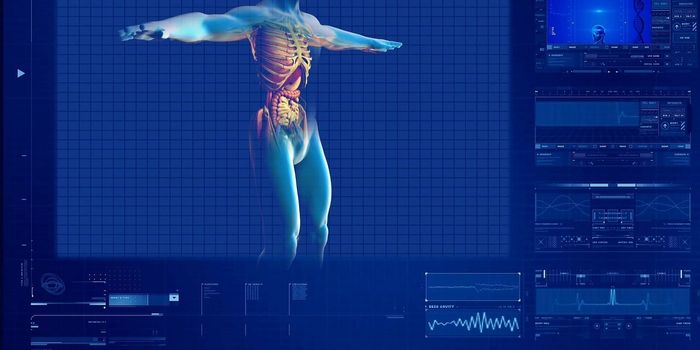A Novel Biomarker of Depression, & New Therapeutic Possibilities are ID'ed
When we are rewarded for an action, the nature of that reward can have a major effect on our future decisions and behavior. In some cases, people will be more likely to make decisions that will boost future rewards. Scientists have long sought to understand the neurological basis of these behaviors. There are also a number of disorders in which reward pathways are known to be dysfunctional, such as major depressive disorder. Research has also suggested that reward behaviors are related to electrical activity in one part of the brain known as the anterior cingulate cortex (ACC). Scientists have now investigated whether the electrical activity in the ACC changes in depression. The findings have been reported in Nature Communications.
This study has shown that when people were rewarded and developed stronger biases, there were enhancements in electrical activity in the ACC called beta oscillations. In depression patients, this neural activity signature was altered. The study authors suggested that this avenue may, therefore, present new options for diagnosing and treating depression.
In this relatively small study, the researchers recruited fifteen people with epilepsy, since those individuals already carried devices that could record brain activity with precise electrophysiological measurements. They also assessed brain activity in four individuals with major depressive disorder. The investigators asked all of these individuals to perform reward-based tasks while their brain activity was recorded.
The test is based on feelings of satisfaction, which can be derived from many things in ordinary life. But in depression, many people lose interest in things that previously brought enjoyment, and they disengage because they lose interest; this phenomenon is known as anhedonia. The researchers were looking for electrophysiological signatures of anhedonia.
When non-depressed people gave two correct responses in a test that rewards those correct responses with unequal rewards, their responses were then biased toward the response that produced a better reward.
"We found that based on feedback, most individuals modified their subsequent responses to make choices that were likely to get rewarded, irrespective of the accuracy of their answers," said first study author Dr. Jiayang Xiao.
There was also electrical acitivity in the beta range that came from the ACC, and which tracked with reward receipt and valuation. The ACC seems to be evaluating rewards and outcomes; it may be a hub of reward assessment.
"Our study has addressed a longstanding fundamental question in neuroscience: which specific brain region and signal regulates the classic reward bias response, a famous example of which is the Pavlovian conditioning where dogs learned to associate the sound of a ringing bell to food," noted penultimate study author Dr. Benjamin Hayden, professor of neurosurgery at Baylor College of Medicine.
After this signature had been identified in the epilepsy group, the scientists analyzed it in the patients with depression, and found that it was altered. The patients did not react in the same way, and did not modify their choices as much for improved rewards. The activity in the ACC region was found to be reduced and delayed. These individuals appear to be making choices that are not as driven by reward.
"In this study, we identified beta activity in the ACC as a potential biomarker for anhedonia," said corresponding study author Dr. Sameer Sheth, professor and vice chair of research in the Department of Neurosurgery at Baylor, among other appointments.
"Such a biomarker could have many potential benefits, including improving diagnosis and monitoring symptoms of patients with severe depression and other anhedonia-related psychiatric conditions. Moreover, our findings present an exciting possibility that modulation of the ACC beta activity might be an effective treatment for anhedonia, a hypothesis we plan to test in future clinical trials."









